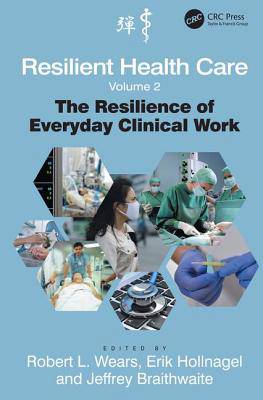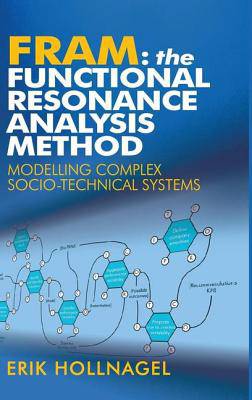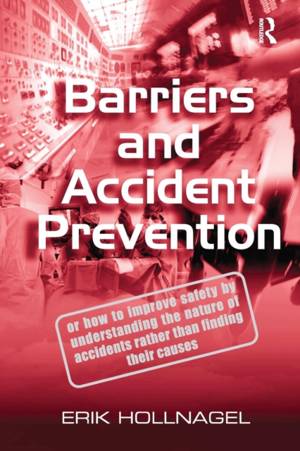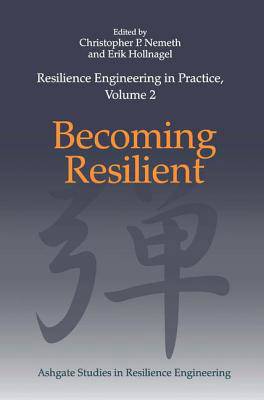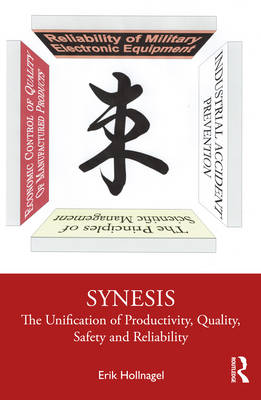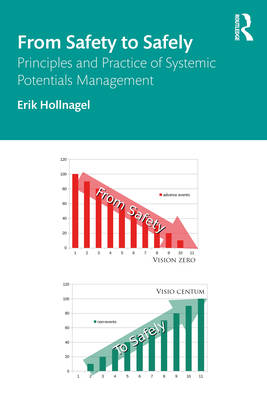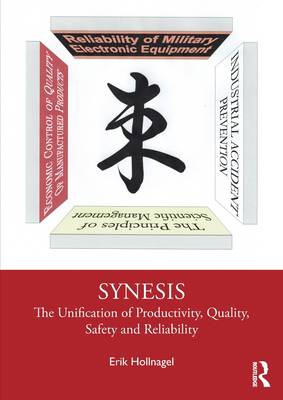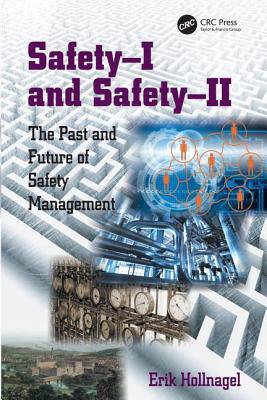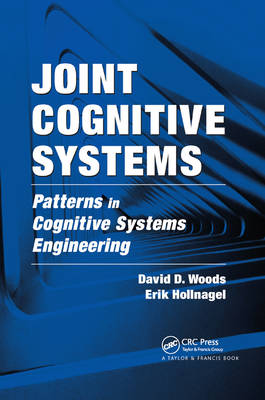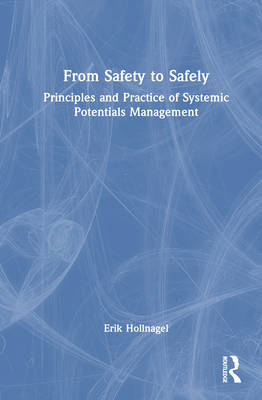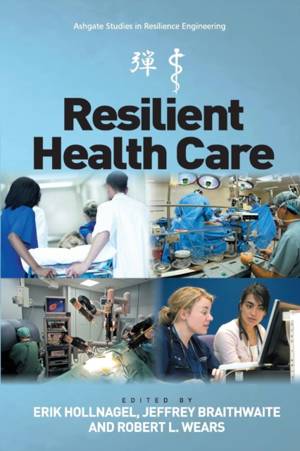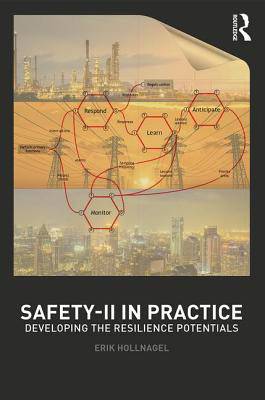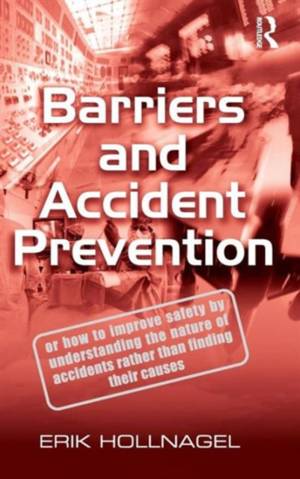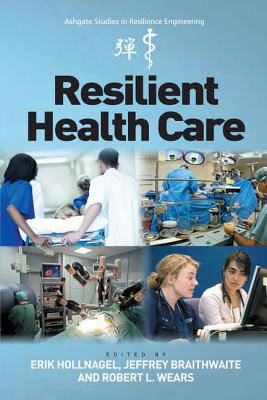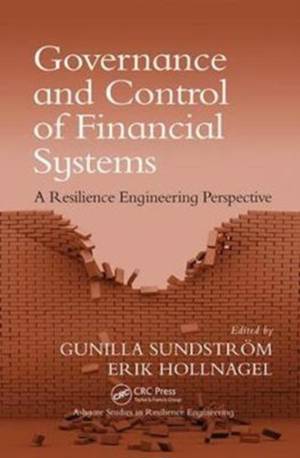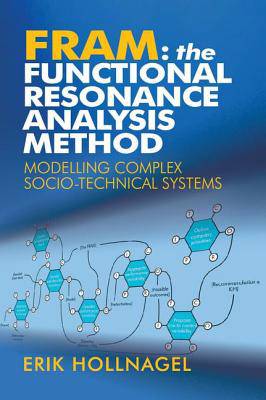
- Retrait gratuit dans votre magasin Club
- 7.000.000 titres dans notre catalogue
- Payer en toute sécurité
- Toujours un magasin près de chez vous
- Retrait gratuit dans votre magasin Club
- 7.000.0000 titres dans notre catalogue
- Payer en toute sécurité
- Toujours un magasin près de chez vous
Livres écrits par Erik Hollnagel
-
Resilient Health Care, Volume 2
Robert L Wears, Erik Hollnagel
- Livre relié | Anglais | Ashgate Studies in Resilience Engineering
- Despite the common focus on deviations and failures in health systems, it is an undeniable fact that clinical work goes right far more often than it g... Savoir plus
244,45 €Livraison 2 à 3 semaines244,45 €Livraison 2 à 3 semaines -
Fram
Erik Hollnagel
- Livre relié | Anglais
- There has not yet been a comprehensive method that goes behind 'human error' and beyond the failure concept, and various complicated accidents have ac... Savoir plus
320,95 €Livraison 2 à 3 semaines320,95 €Livraison 2 à 3 semaines -
Barriers and Accident Prevention
Erik Hollnagel
- Livre broché | Anglais
- Accidents are preventable, but only if they are correctly described and understood. Since the mid-1980s accidents have come to be seen as the conseque... Savoir plus
109,95 €Livraison 2 à 3 semaines109,95 €Livraison 2 à 3 semaines -
Governance and Control of Financial Systems
Gunilla Sundstrom, Erik Hollnagel
- Livre relié | Anglais | Ashgate Studies in Resilience Engineering
- This book illustrates how the safety science of Resilience Engineering can help to gain a better understanding of what the financial services system i... Savoir plus
320,95 €Livraison 2 à 3 semaines320,95 €Livraison 2 à 3 semaines -
Resilience Engineering in Practice, Volume 2
Christopher P Nemeth, Erik Hollnagel
- Livre relié | Anglais | Ashgate Studies in Resilience Engineering
- This volume describes how safety can change from being protective to being productive, thereby improving the resilience of the system. This is the fif... Savoir plus
198,45 €Livraison 2 à 3 semaines198,45 €Livraison 2 à 3 semaines -
Synesis
Erik Hollnagel
- Livre relié | Anglais
- This book shows how to overcome the traditional thinking in silos that limits the dominant change management approaches. Savoir plus
70,45 €Livraison 2 à 3 semaines70,45 €Livraison 2 à 3 semaines -
From Safety to Safely
Erik Hollnagel
- Livre broché | Anglais
- This book provides a practical perspective on managing safely, illustrating a practical form of synesis. It offers a new understanding of safety, comb... Savoir plus
74,95 €Livraison 2 à 3 semaines74,95 €Livraison 2 à 3 semaines -
The ETTO Principle
Erik Hollnagel
- Livre broché | Anglais
- Accident investigation and risk assessment have for decades focused on the human factor, particularly 'human error'. This bias towards performance fai... Savoir plus
102,45 €Livraison 2 à 3 semaines102,45 €Livraison 2 à 3 semaines -
Synesis
Erik Hollnagel
- Livre broché | Anglais
- The complexity of today's large organisations, businesses, and social institutions defeats management approaches based on monolithic thinking. Most in... Savoir plus
70,45 €Livraison 2 à 3 semaines70,45 €Livraison 2 à 3 semaines -
Safety-I and Safety-II
Erik Hollnagel
- Livre relié | Anglais
- Safety has traditionally been defined as a condition where the number of adverse outcomes was as low as possible (Safety-I). From a Safety-I perspecti... Savoir plus
335,95 €Livraison 2 à 3 semaines335,95 €Livraison 2 à 3 semaines -
Safety-II in Practice
Erik Hollnagel
- Livre relié | Anglais
- Safety-I is defined as the freedom from unacceptable harm. The purpose of traditional safety management is therefore to find ways to ensure this 'free... Savoir plus
175,95 €Livraison 1 à 2 semaines175,95 €Livraison 1 à 2 semaines -
Joint Cognitive Systems
Erik Hollnagel, David D Woods
- Livre broché | Anglais
- Written by pioneers in the development of Cognitive Systems Engineering (CSE), this book offers a unique presentation of how to study human work with ... Savoir plus
71,95 €Livraison 1 à 2 semaines71,95 €Livraison 1 à 2 semaines -
Proceedings of the fourth resilience engineering symposium
Erik Hollnagel, Eric Rigaud, Denis Besnard
- Ebook | Anglais | Sciences économiques
- These proceedings document the various presentations at the Fourth Resilience Engineering Symposium held on June 8-10, 2011, in Sophia-Antipolis, Fran... Savoir plus
26,99 €Disponible immédiatement26,99 €Disponible immédiatement -
Safety-I and Safety-II
Erik Hollnagel
- Livre broché | Anglais
- This book analyses and explains the principles behind Safety-I and Safety-II and approaches and considers the past and future of safety management pra... Savoir plus
67,95 €Livraison 1 à 2 semaines67,95 €Livraison 1 à 2 semaines -
Joint Cognitive Systems
David D Woods, Erik Hollnagel
- Livre broché | Anglais
- Synthesizing basic results on how to design human work with complex systems, Joint Cognitive Systems: Patterns in Cognitive Systems Engineering provid... Savoir plus
102,45 €Livraison 2 à 3 semaines102,45 €Livraison 2 à 3 semaines -
From Safety to Safely
Erik Hollnagel
- Livre relié | Anglais
- This book provides a practical perspective on managing safely, illustrating a practical form of synesis. It offers a new understanding of safety, comb... Savoir plus
290,45 €Livraison 2 à 3 semaines290,45 €Livraison 2 à 3 semaines -
Resilient Health Care
Erik Hollnagel, Jeffrey Braithwaite
- Livre broché | Anglais | Ashgate Studies in Resilience Engineering
- This book contains contributions from international experts in health care, organisational studies and patient safety, as well as resilience engineeri... Savoir plus
102,45 €Livraison 2 à 3 semaines102,45 €Livraison 2 à 3 semaines -
The ETTO Principle
Erik Hollnagel
- Livre relié | Anglais
- Accident investigation and risk assessment have for decades focused on the human factor, particularly 'human error'. This bias towards performance fai... Savoir plus
290,45 €Livraison 2 à 3 semaines290,45 €Livraison 2 à 3 semaines -
Safety-II in Practice
Erik Hollnagel
- Livre broché | Anglais
- Safety-I is defined as the freedom from unacceptable harm. The purpose of traditional safety management is therefore to find ways to ensure this 'free... Savoir plus
85,45 €Livraison 2 à 3 semaines85,45 €Livraison 2 à 3 semaines -
Barriers and Accident Prevention
Erik Hollnagel
- Livre relié | Anglais
- Accidents are preventable - but only if they are correctly described and understood. Since the mid-1980s accidents have come to be seen as the consequ... Savoir plus
213,95 €Livraison 2 à 3 semaines213,95 €Livraison 2 à 3 semaines -
Resilient Health Care. Edited by Erik Hollnagel, Jeffrey Braithwaite, Robert L. Wears
Erik Hollnagel, Jeffrey Braithwaite
- Livre relié | Anglais | Ashgate Studies in Resilience Engineering
- This book contains contributions from international experts in health care, organisational studies and patient safety, as well as resilience engineeri... Savoir plus
228,95 €Livraison 2 à 3 semaines228,95 €Livraison 2 à 3 semaines -
Governance and Control of Financial Systems
Gunilla Sundstrom, Erik Hollnagel
- Livre broché | Anglais | Ashgate Studies in Resilience Engineering
- This book illustrates how the safety science of Resilience Engineering can help to gain a better understanding of what the financial services system i... Savoir plus
111,45 €Livraison 2 à 3 semaines111,45 €Livraison 2 à 3 semaines -
Fram
Erik Hollnagel
- Livre broché | Anglais
- There has not yet been a comprehensive method that goes behind 'human error' and beyond the failure concept, and various complicated accidents have ac... Savoir plus
67,95 €Livraison 1 à 2 semaines67,95 €Livraison 1 à 2 semaines -
Joint Cognitive Systems
Erik Hollnagel, David D. (The Ohio State University, Columbus, USA) Woods
- Livre relié
- Offers a presentation of how to study human work with complex technology. This work uses a top-down, functional approach and emphasizes a proactive (c... Savoir plus
195,95 €Livraison 1 à 2 semaines195,95 €Livraison 1 à 2 semaines





